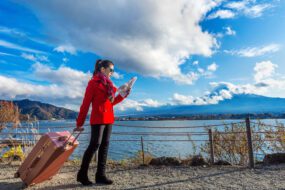
Travel is one of life’s greatest joys. The thrill of exploring new places, experiencing different cultures, and making lifelong memories is incomparable. However, traveling also comes with its share of risks. From petty theft to health emergencies or political unrest, the key to a successful trip lies in being prepared and staying vigilant. Whether you’re a first-time traveler or a seasoned globetrotter, these travel safety tips will help you explore the world with confidence.
1. Research Your Destination Thoroughly
Before setting foot in a new country or city, do your homework. Understanding your destination is the first step toward staying safe.
- Know the local laws and customs: What might be normal at home could be offensive or even illegal elsewhere. For example, certain hand gestures or clothing choices might cause issues in more conservative cultures.
- Stay informed about current events: Check travel advisories from official sources like the U.S. Department of State or the U.K.’s Foreign Office.
- Understand the layout: Learn about safe vs. risky neighborhoods, transportation options, and general infrastructure.
- Know emergency contacts: Memorize or keep a list of local emergency numbers, and know the location of your country’s embassy or consulate.
2. Share Your Itinerary
Let someone back home know your travel plans, especially if you’ll be traveling solo or visiting remote areas.
- Use digital tools: Apps like Google Maps or TripIt can organize your travel plans and allow you to share them with loved ones.
- Check in regularly: A quick message every few days lets friends or family know you’re safe.
- Leave a copy of documents: Share digital or physical copies of your passport, travel insurance, and ID with someone you trust.
3. Get Travel Insurance
Never underestimate the importance of travel insurance. It can be a literal lifesaver.
- Medical coverage: Emergency medical care abroad can be expensive. Make sure your policy includes it.
- Trip cancellation or interruption: If your plans are disrupted due to illness, natural disasters, or political unrest, travel insurance can reimburse your expenses.
- Theft or loss: Some policies cover lost or stolen belongings, including electronics or passports.
Always read the fine print and choose a plan that fits your needs.
4. Stay Healthy on the Road
Health issues can ruin a trip, so it’s crucial to take preventive steps.
- Vaccinations: Make sure you’re up-to-date with required or recommended vaccines. Visit a travel clinic at least six weeks before departure.
- Bring a basic medical kit: Include items like pain relievers, band-aids, antiseptic, antihistamines, and any prescription meds.
- Watch what you eat and drink: Foodborne illness is one of the most common travel problems. Stick to bottled water if tap water isn’t safe, and eat at clean, busy places.
- COVID-19 precautions: While restrictions may have eased, stay informed about vaccination, testing, and mask requirements.
5. Protect Your Valuables
Tourists are often easy targets for pickpockets and thieves.
- Leave unnecessary valuables at home: Don’t bring expensive jewelry or high-end electronics unless necessary.
- Use anti-theft gear: Invest in a theft-resistant backpack or a money belt that fits under your clothes.
- Be discreet: Don’t flash large amounts of cash or expensive gear in public.
- Split up your cash and cards: Keep some cash in a hidden pocket or separate bag in case of theft.
6. Be Street Smart
Being alert and aware of your surroundings is one of the simplest ways to stay safe.
- Avoid risky areas, especially at night: Research areas that have high crime rates and avoid walking alone in unfamiliar neighborhoods after dark.
- Blend in: Dress modestly and avoid standing out too much as a tourist. Learn a few basic phrases in the local language to communicate and build trust.
- Don’t share too much: Be cautious about revealing personal details or your exact location to strangers.
- Be cautious with alcohol: While it’s fine to enjoy a drink, excessive drinking makes you more vulnerable.
7. Stay Connected
Communication is crucial for both convenience and safety.
- Buy a local SIM card or get an international plan: Staying connected ensures you can use maps, contact local services, or call for help.
- Use secure Wi-Fi: Avoid accessing sensitive information on public Wi-Fi. Consider using a VPN (Virtual Private Network).
- Download safety apps: Apps like SmartTraveler, GeoSure, or bSafe offer alerts, maps, and emergency assistance.
8. Transportation Safety
How you get around can have a huge impact on your safety.
- Only use reputable taxis or ride-shares: Ask your hotel or a local to recommend trusted services. Avoid unmarked taxis.
- Public transit awareness: In some cities, public transportation can be a hotspot for pickpockets. Keep belongings close and stay alert.
- Driving abroad: If you’re renting a car, understand local driving laws. Always wear a seatbelt and avoid driving at night in unfamiliar areas.
9. Know What to Do If Something Goes Wrong
Despite your best efforts, things can go wrong. Knowing how to respond can minimize the damage.
- Lost or stolen passport: Report it immediately to the police and your embassy. Having a photocopy can speed up the process.
- Robbery or assault: Stay calm, don’t resist, and report the incident to local authorities and your embassy.
- Medical emergency: Use your travel insurance provider’s emergency hotline for help finding a hospital or arranging transport.
- Natural disasters or political unrest: Follow instructions from local authorities, stay indoors, and stay in contact with your embassy.
10. Female and Solo Traveler Safety Tips
Traveling solo or as a woman can be incredibly rewarding, but it also comes with unique safety concerns.
- Trust your instincts: If a situation or person feels off, remove yourself.
- Stay in reputable accommodations: Read reviews and choose well-rated, secure places.
- Have backup options: Know where the nearest 24-hour café, hotel, or police station is in case you feel unsafe.
- Avoid walking alone at night: Opt for a taxi or rideshare instead.
- Be cautious with strangers: While meeting new people is part of the fun, always let someone know where you’re going and who you’re with.
11. Cultural Respect = Safety
Being respectful and culturally aware can often help you stay out of trouble.
- Dress appropriately: In some countries, revealing clothing might attract unwanted attention or even legal trouble.
- Learn key phrases: Being able to say “hello,” “thank you,” or “help” in the local language goes a long way.
- Mind your behavior: Public displays of affection, drinking in public, or photographing certain sites may be frowned upon.
12. Use Technology to Your Advantage
Today’s digital world offers tools that make travel safer and easier.
- Google Translate: Helps you navigate language barriers.
- Maps.me or Google Maps offline: Great for navigating when you don’t have signal.
- Currency converters: Avoid being scammed with real-time conversion apps.
- Local emergency apps: Some countries have their own safety or weather alert apps worth downloading before arrival.
13. Scam Awareness
Every traveler encounters scams sooner or later. Knowing the most common ones can help you avoid them.
- Overcharging taxis: Always agree on a price beforehand or ensure the meter is running.
- Fake police: Ask to see identification or offer to go to the nearest station if unsure.
- Distraction thefts: If someone causes a scene near you (like dropping something or creating an argument), protect your belongings—they might be working with a pickpocket.
- Too-good-to-be-true deals: Be skeptical of free tours, “gifts,” or miracle cures.
14. Document Everything
Keep track of important documents and transactions.
- Make digital copies: Scan your passport, visas, ID, and insurance and store them in a cloud service.
- Keep a travel journal: Not just for memories—if you need to file a police report, it helps to remember details like times and places.
- Save receipts: For insurance claims or tax purposes, hold on to important receipts.
15. Trust Your Gut
This is perhaps the most important tip of all. If something doesn’t feel right, trust your instincts.
- Leave early: Don’t hesitate to cut a night short if things feel sketchy.
- Say no: You don’t owe anyone your time or attention if you’re uncomfortable.
- Take precautions without paranoia: You can be alert without being fearful—safety and fun can go hand-in-hand.
Final Thoughts
Traveling is meant to be enriching, enlightening, and enjoyable. By taking a few precautions and staying aware, you can drastically reduce the risks and focus on creating unforgettable experiences. Remember, being prepared doesn’t mean expecting the worst—it means empowering yourself to handle anything that comes your way.
So go ahead: book that trip, pack your bags, and explore the world. Just do it smartly and safely.
Safe travels!
Let me know if you’d like this adapted for a specific destination, audience (e.g., seniors, backpackers, LGBTQ+ travelers), or travel style (luxury, solo, adventure, etc.).























